Far Away Eyes’ Deeper Look: Supernatural 13.16 “Scoobynatural”
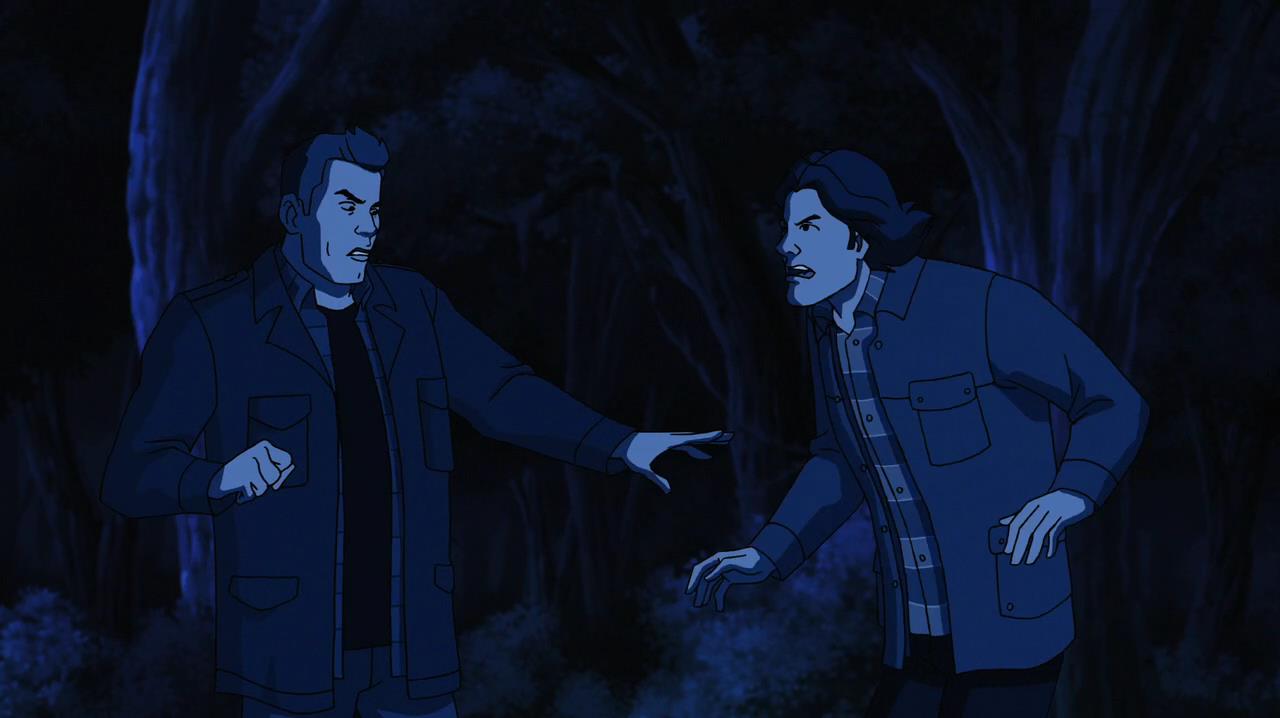
In this crazy world and times, we all seek refuge. Some turn to sports. Others turn to gardening. Some immerse themselves in crafting while others spend their time recharging through chores or handy-man tasks. Whatever it is, we turn to those things to escape from the hectic realities we face in our lives—be it work, politics, family strife, illness, or financial problems. For others, refuge is found in story—books, movies, or television shows. Some we anticipate upon their release. Others we return to again and again for their familiarity. Stories allow us to experience so much that we’d rather not in real life. The best conflict is typically fictional—and it’s one reason why we find refuge in them. Supernatural, as a television show, certainly fits that bill. Cross it over with another show like Scooby-Doo and you have the recipe for exploring story as refuge both on the metafictional and real level. Through Sam and Dean’s experience of a realm they see as fictional (as we see them as fictional) we, too, celebrate story and its power to grant us refuge.
As soon as I started to understand language and started to speak, I have been enthralled by stories. I can remember my dad reading the Hobbit to and with me. I can remember what that story made me feel that first time and how sharing it with someone I loved meant to me. No matter what was going on in my life, I knew that I could turn to stories like it—reading books like Little Women, Gone with the Wind, the Belgariad series, and others allowed me an exit for a moment from the world around me. So, too, was it with television. The X-Files. Psych. Supernatural. Scooby-Doo. All would be places I could escape into through the screen and just exist without worrying about the world or my personal problems at large. Studying story has always been a passion—and with it a thirst to soak up as many of them as I can—hence my BA in Creative Writing, I think. It’s also why I’m researching story itself for a project. It’s a good thing stories like Supernatural and Scooby-Doo have such longevity!
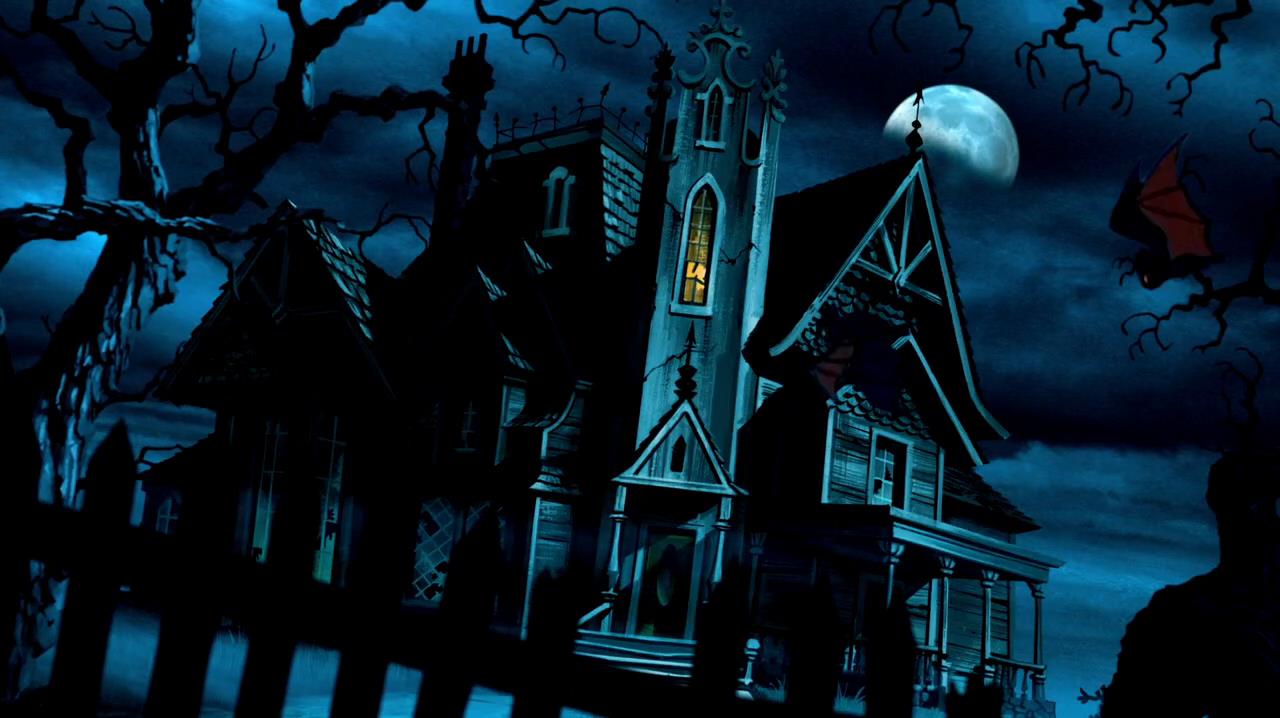
In fact, before I even knew what a fandom was, Scooby-Doo would have been my first. I remember watching all of the old reruns as a little kid. I adored Scooby and the Gang and knew most of their episodes by heart. I prefer the original over any of the adaptations through the years. I also really appreciate the blog on Tumblr called Scooby Doo Mistakes because of my first love for this cartoon. As an adult, if it’s on I still enjoy watching it from start to finish. I quote it—especially the episode with the guy in pursuit of the coin. My dad collects coins and if he’s been talking too much about them I often will say, “Coin, coin, COIN!” like the villain of that episode. Sure, the mysteries often end up the same after awhile (They got that right in “Scoobynatural.” The villain is almost ALWAYS some shady real-estate mogul) and they had some tropes that had to be met in each episode from the chase sequences to Fred’s failed traps to the clue gathering, but I loved it. I still do. My tradition at Christmas time is to wrap the presents I give away in Scooby-Doo paper. Scooby-Doo is pure fun and I think it appeals after all these years because it keeps it simple and has characters that just click.
When they announced “Scoobynatural,” I was elated. It was the type of episode I knew I’d enjoy even before they had aired it. (It also makes my argument for a stand alone season, but I digress). They are really two similar stories—at least at their roots. Of all the cartoons, I just can’t imagine any other one clicking as well with Supernatural as Scooby-Doo. I think that these two shows also capture how our tastes in stories tend to skew one direction or another rather early. What I enjoyed about Scooby Doo as a child I enjoy immensely as an adult in Supernatural. Their similar storylines and tropes—while being vastly different in style and presentation—make them both enduring and endlessly fascinating. Ultimately, I think it boils down to the fact that the good guys will win (eventually) and that for a little while their world becomes my world.
So, let’s examine the metafictional aspects that underpin and help explore the concept of story as refuge.
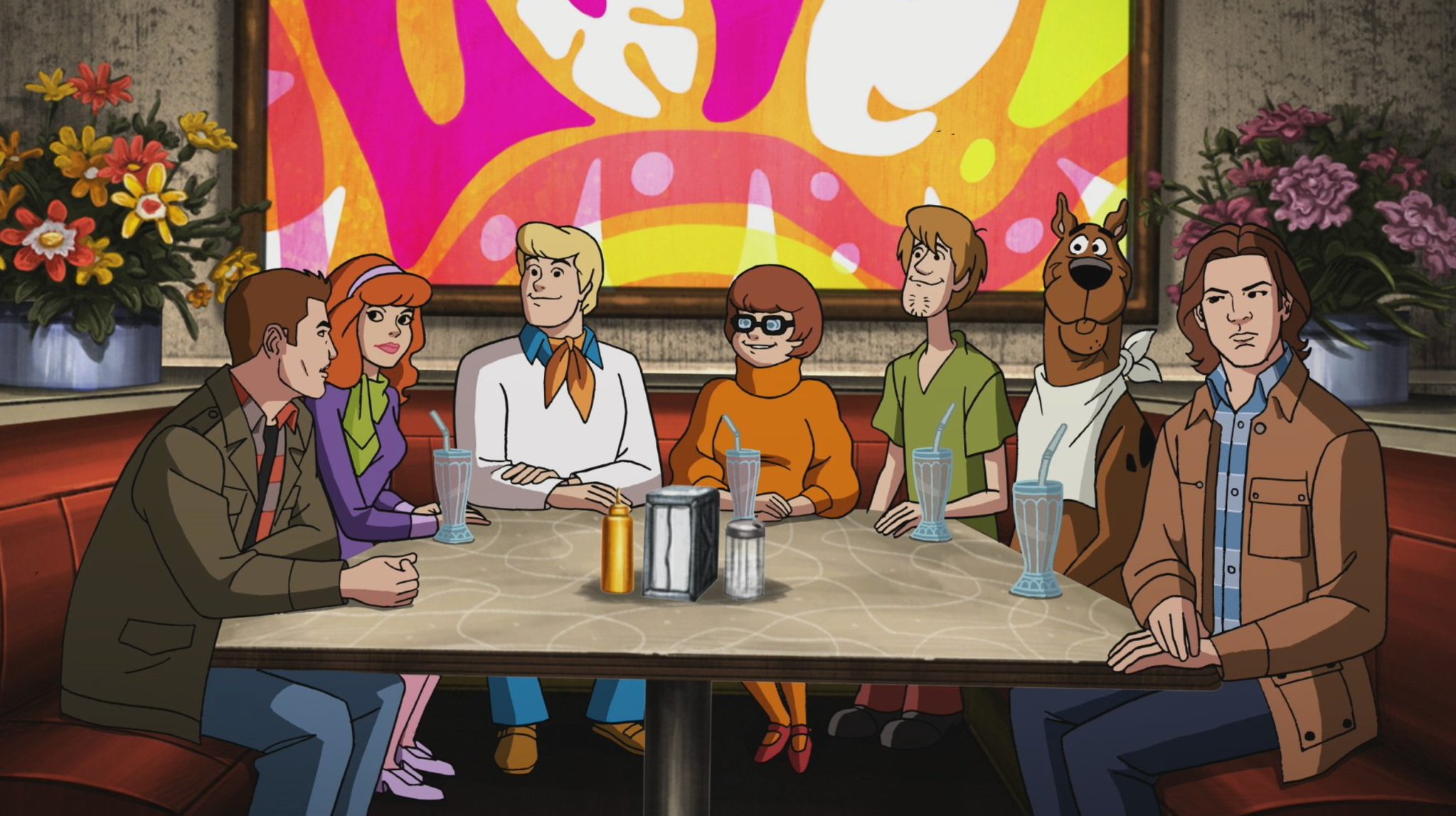
Both Scooby-Doo and Supernatural are fictional stories—television shows to be exact. They take place in a universe outside but parallel to our own. Scooby-Doo is animated but has a focus on showing the villain to always be some human being up to no good. The concept that a group of teenagers traipsing all over the place to solve these mysteries seems implausible if one thinks too hard about it, but in a way that’s precisely why it works. It works, in part, because when most of us first meet it we’re children and we find ourselves enthralled by a talking dog and a group of friends that help others and each other solve mysteries. In Supernatural, Sam and Dean hunt actual monsters, demons, werewolves, and other nefarious creatures traveling on the road from place to place. It works because there’s enough humanity invested in Sam and Dean—and much of the supernatural beings they encounter—that we can suspend our disbelief. Sam and Dean do what they do in order to make their world better—and while their methods and the reasons for them are implausible in our reality, they give us metaphor to the struggles we face. Therefore, in both, a profound bond can be built between the shows and their audiences.
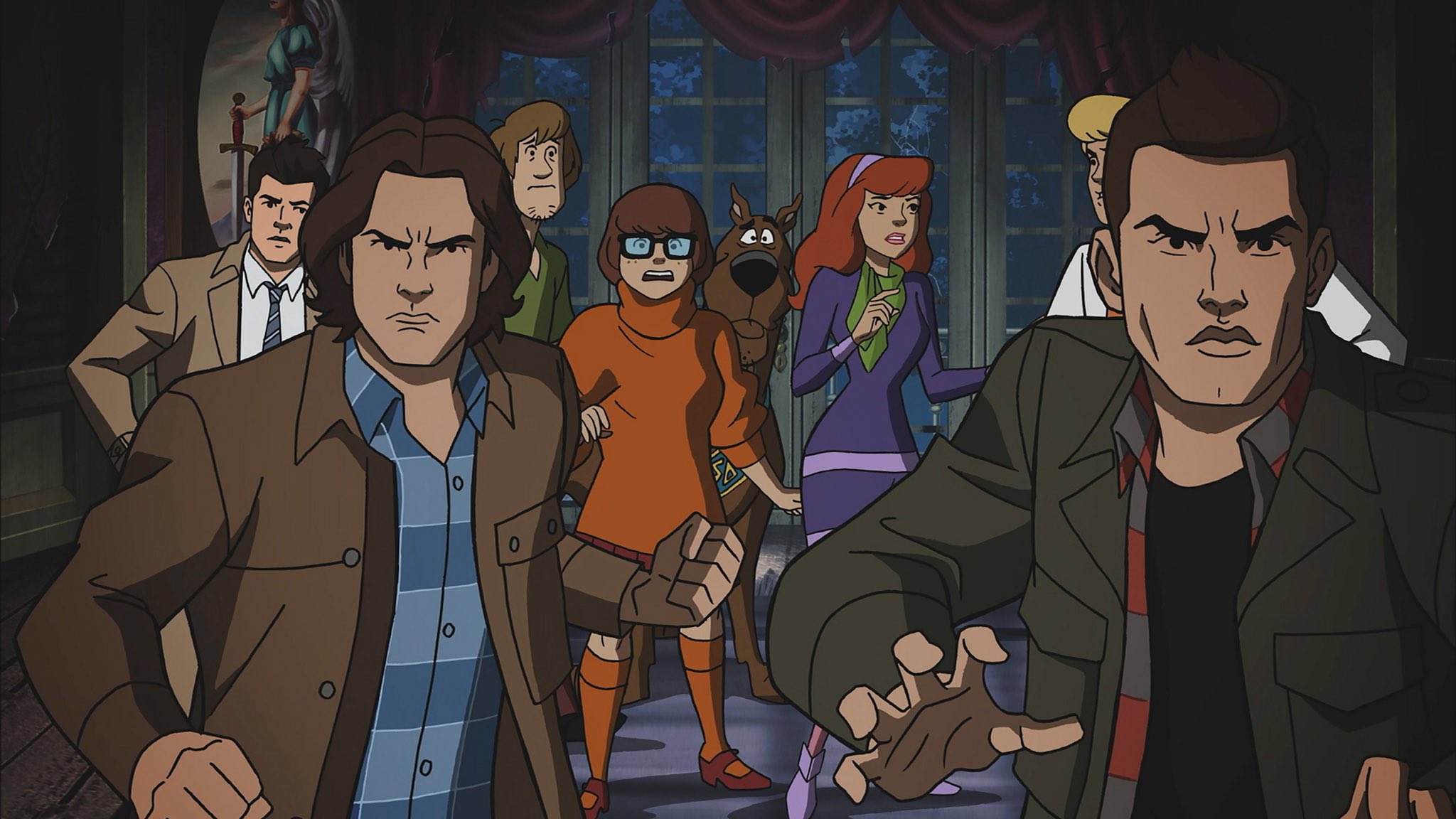
In short, it takes one episode or a season for Supernatural to solve a case that allows us to see closure and have a familiar place to return to again and again when we need a moment to breathe. We know, no matter what, Sam and Dean will find a way to stop the bad guys and save the world. No matter how that road unwinds through a season, we know this to be true. It’s the how that we get there that keeps us invested as much as the pay-off that they will win. Scooby-Doo rests its foundation on this premise as well. By the end of the episode, the villain will be unmasked, the kidnapped victims released, the familiar close of the villain cursing the gang by stating, “I would have gotten away with it if it weren’t for those meddling kids!” Both shows provide refuge in an uncertain world. They are there—always—and we know we can pick our favorite episodes to relive again. For a half an hour or an hour, we can go to their world and just be. It’s nice and freeing to see that the good triumphs over evil, the case can be solved, the monster/villain vanquished when we know in reality that’s not always the case.
How do we see those metafictional moments explored through the episode, though?
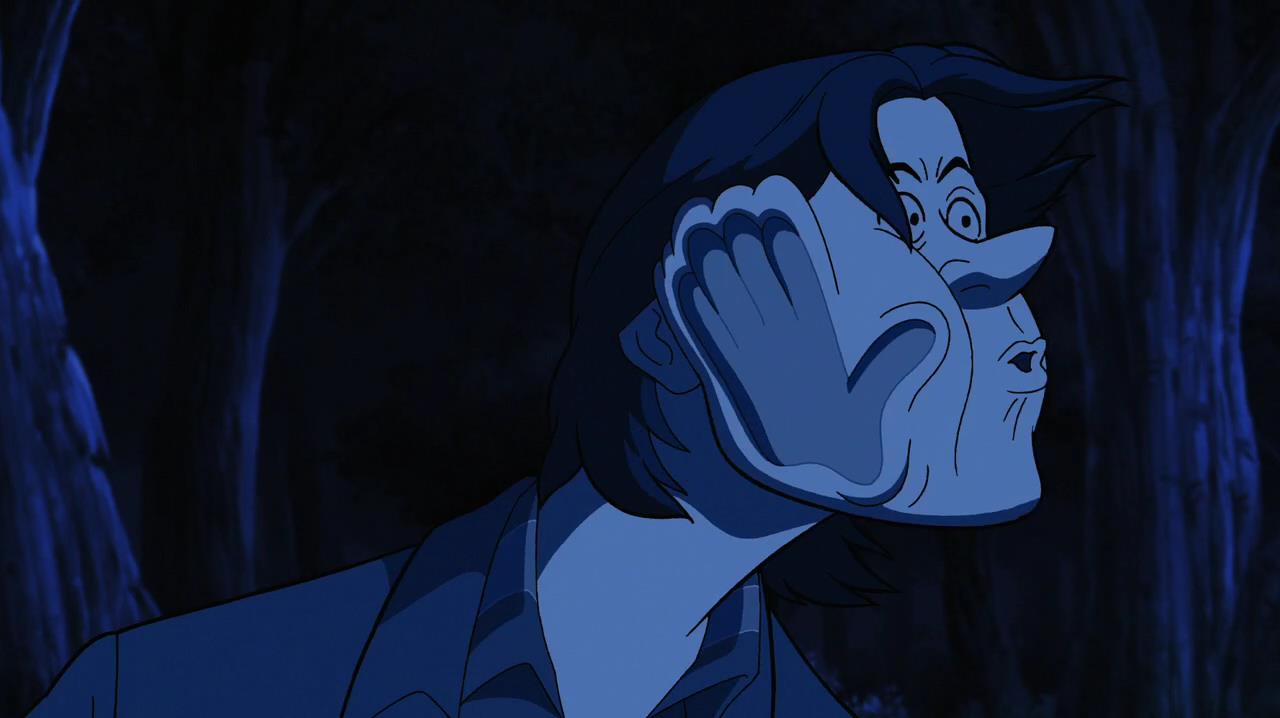
In the dialogue and the animation we are presented with several. Once the Winchesters enter the Scooby-Doo universe and realize just where they are, we see Dean in particular point out all of the motifs and tropes that every Scooby-Doo episode rests upon while Sam plays the devil’s advocate by pointing out all of the ridiculous and silly instances peppered through out. It allows Supernatural to mock itself while mocking the story its crossing over with at the same time. Once they realize they’re cartoons, Dean can’t help himself but by slapping Sam to see if it’ll be just like the cartoons. It is. Sam’s face takes on an impossibly large handprint and magically recovers as if nothing happened. They realize that they must be in another scenario—like “Changing Channels”—and if they “play their part” they’ll be able to get out. Sam points out that the Trickster aka Gabriel is dead to which Dean states, “Or is he?” The episode may have been written prior to Gabriel’s actual return to the show, but it seems almost plotted on purpose which makes it an even better nod to the audience well aware of what the brothers aren’t—Gabriel is indeed not dead after all and therefore may just be the culprit behind this latest foray into TV land.
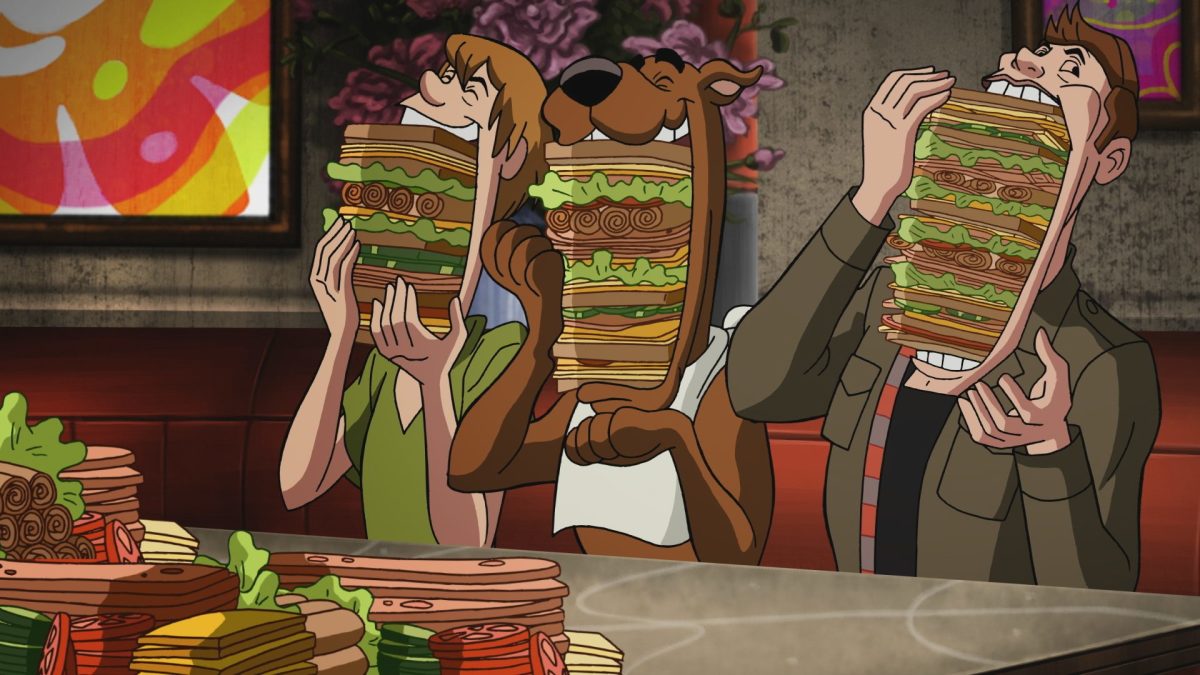
As they enter the malt shop and encounter the Scooby Gang, Dean is ecstatic to meet the characters he’s followed from his childhood. He is eager to try and eat a massive sandwich he couldn’t possibly eat in one bite in the real world—thus also shouting out to Supernatural‘s past in “Changing Channels.” Now, indeed, Dean does have the “bigger mouth” he needed then. Sam can’t help but point out the “case” the Scooby Gang found is impossible to read about. He points out to Dean, “There are no words in this newspaper, Dean. We should be trying to get out of here and instead you — you’re hanging out with Marmaduke. ” The two iconic vehicles of the shows have a drag race meet up—Mystery Machine vs. Baby. Ironically, the van wins in the race, all to Dean’s horror and chagrin. He brushes it off with a complaint that there was a red-light and Fred cheated. As they enter the house to see that Colonel Sanders—a name that Sam can’t believe and yet also shouts out to the current season’s villain, Asmodeus nicknamed Evil Colonel Sanders by Dean—is giving away his fortune to anyone that will stay in his house overnight. Sam finds the concept preposterous and questions, “Is that even legal?” Dean automatically knows what episode they’ve been trapped into. He exclaims, “A Night of Fright Is No Delight!”
As Dean knows the plot by heart, he is able to predict what will happen next—except that’s not what happens at all. Sam is exasperated that they’re not doing anything about trying to get out of this cartoon world. He can’t believe his brother is eating again and generally sitting around rather than helping him find clues. Dean tells him that they’re about to have the first appearance of the phantom. A scream is heard not too long after and Dean remarks, “Told ya.”
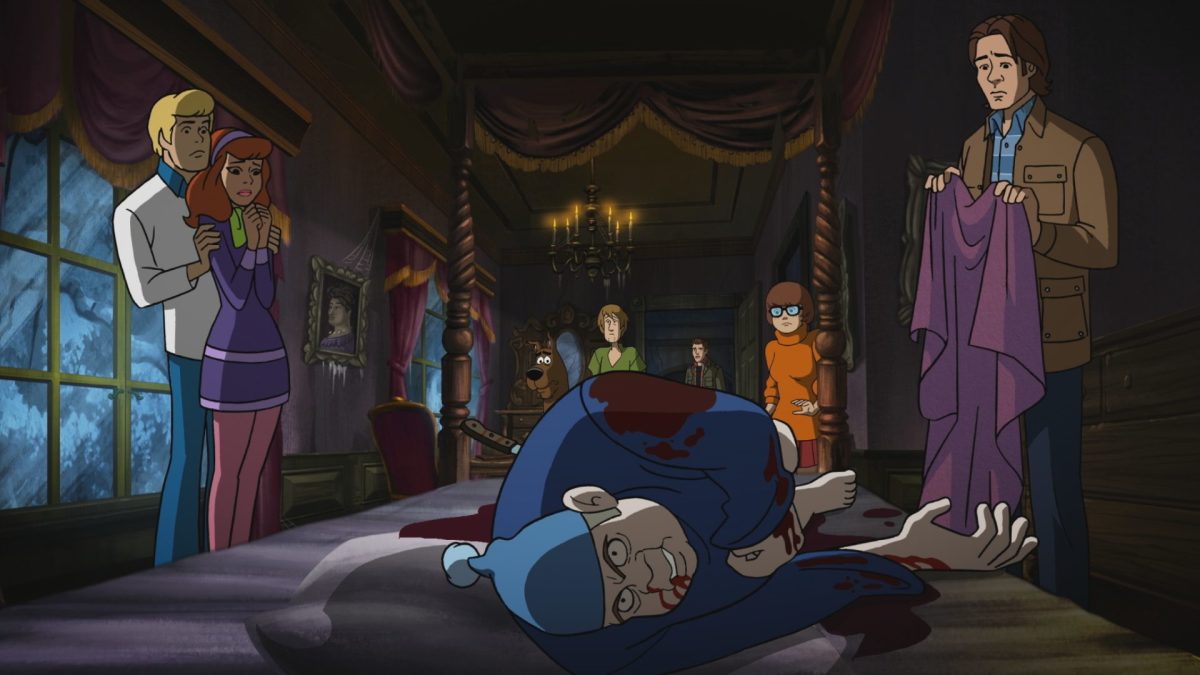
And yet, it is here where Supernatural starts to truly bleed into the Scooby-Doo world. Yes, Sam and Dean have been present all along, but the rules of their universe haven’t really applied. They can be slapped and their faces bounce back like rubber. They are able to talk to Scooby-Doo, a dog. They’re following almost more than leading on the case at this point, allowing the flow of the Scooby-Doo storyline to play out before them. Now, however, they realize that this is more their type of ghost and less the masked villain of the cartoon. A man has died—he’s been stabbed in the back, left to bleed out on the floor. Sam is aghast by this—and as Fred exclaims his catchphrase, “Looks like we have another mystery on our hands!” he retorts, “Are you kidding me, Fred? Someone is dead. Show some respect.”
We get another metafictional shout out when each character gets to say their catchphrase. Shaggy says “Zoinks!” Velma exclaims, “Jinkies!” Daphne cries, “Jeepers!” and Scooby-Doo states, “Ruh-roh”—something Dean has said in prior episodes of Supernatural. Dean finishes the sequence by shouting, “Son of a bitch!” It’s a great humorous element that masks the awful truth that Sam points out. He says to Dean, “Um, so, if that guy can die for real in this cartoon, that means we can, too.” It means that Supernatural is starting to take over the Scooby-Doo universe. Its rules will chip away slowly at the rules of the cartoon. Dean is aghast at this as he knows there’s never been an actual dead body in any episode of the show. They’ve been kidnapped and faked, but never actually killed. The schemes in Scooby-Doo center on scaring people off from something—not actually harming anyone.
The next victim is far more gruesome—even in animation. He’s been hung up and decapitated—and while this is the far more shocking death, this one doesn’t seem to phase the Scooby Gang as much. Fred and the gang seem ready to search for clues and figure out just what is going on—Velma suggests looking for fingerprints as starters. Even Dean is upset by this victim, however. He exclaims, “I think I’m going to be sick.” Sam is exasperated—and points out another cartoon fallacy. He asks, confused by their response, “So, do they always just walk away from dead bodies or—”
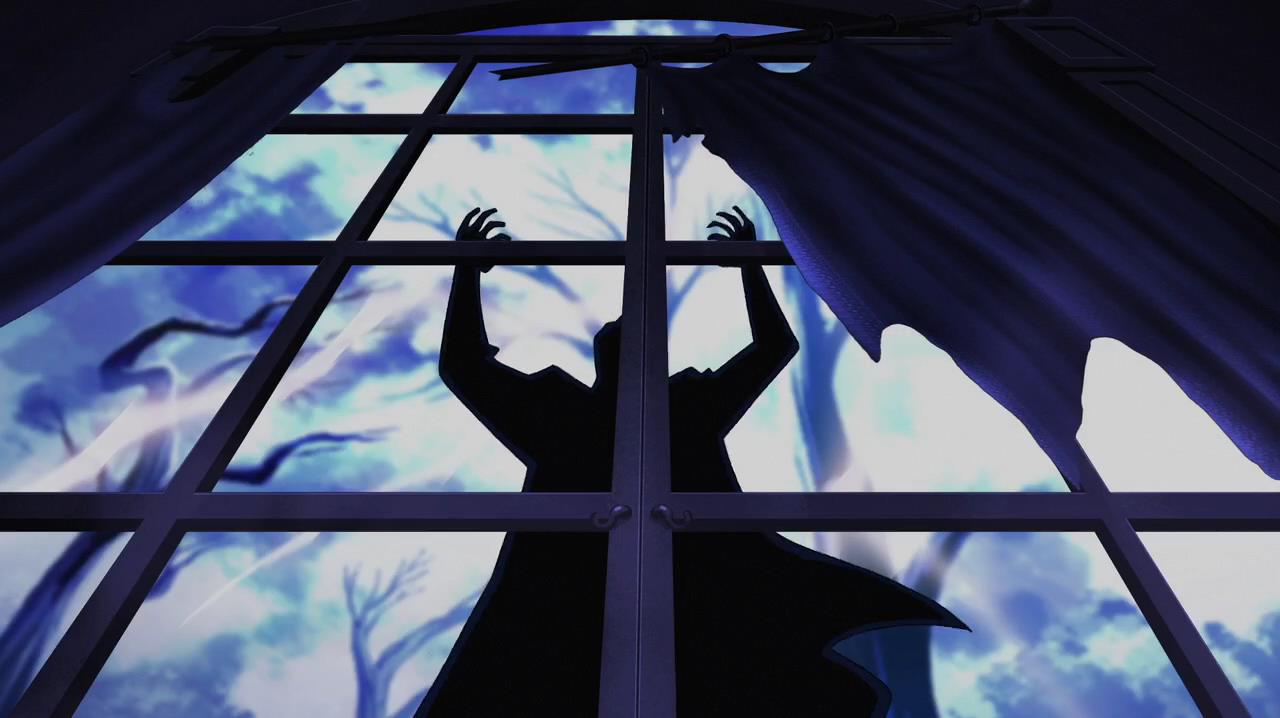
The Winchesters and Scooby Gang gather together to try and figure out what they should do when someone approaches the window, startling everyone. Sam and Dean are more cautious about it, uncertain to just who might be arriving—could it be the angel behind this, even Gabriel himself? Could it be some other monster that might harm them? Before they can do anything, Fred has tackled that figure and thrown a curtain over them to subdue them. To their surprise, Castiel emerges and is miffed at his treatment if not puzzled by their seeming ability to outright accept a talking dog.
Now that the whole gang is in place—both the Scooby-Doo and Supernatural variety—the episode truly delves deep into the crossover. The groups are split up and start their clue search—a staple of Scooby Doo. There, Sam confirms that it is a real ghost when he finds ectoplasm. The ghost appears again and it is as the Winchesters feared. Its appearance also triggers one of those classic moments in any Scooby-Doo episode—the chase scene.
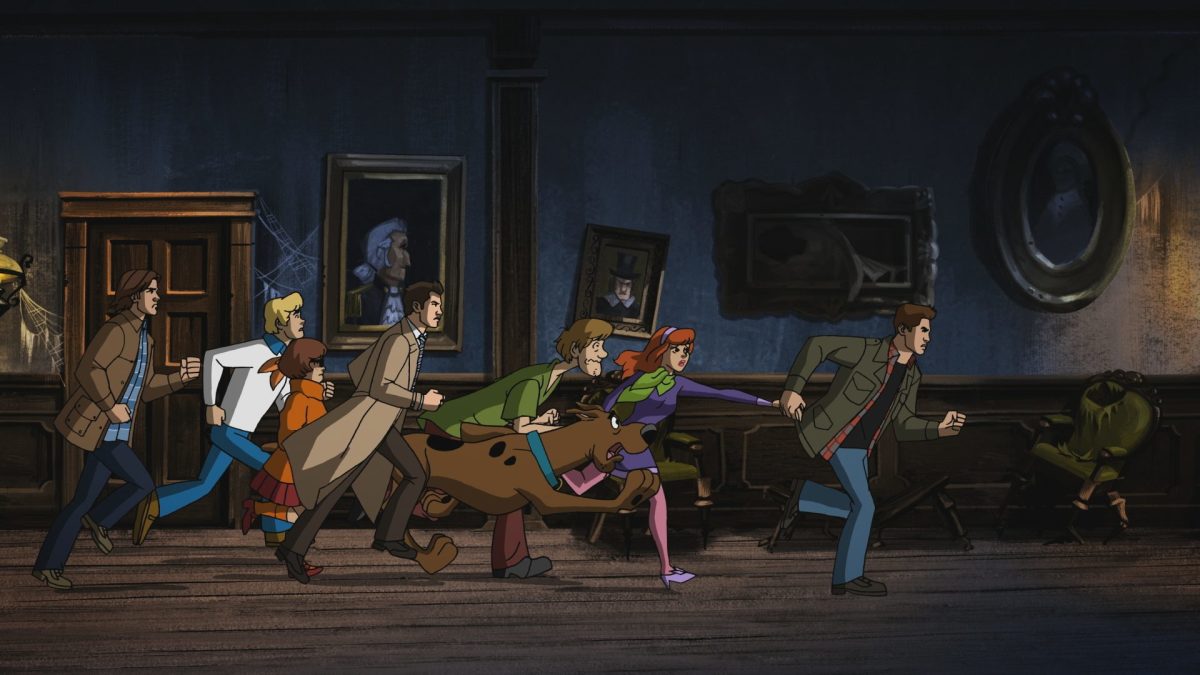
The group runs all over from the ghost—through doors, up and down stairs, and more. The ghost ends up following behind Shaggy, Scooby-Doo, and Castiel, all the while they don’t seem to realize that it’s there. Scrappy-Doo, not even featured as a character, makes a brief appearance running in the hallway between the doors. Anyone who knows Scooby-Doo expects it—even the end when the group ends up colliding with one another in a big pile-up. It isn’t the type of ghost the Scooby Gang faces at all. It makes Daphne and Velma float. It throws Fred around—even making him bleed. It throws Shaggy out of a window. It is clearly not a masked man at all. Sam finds iron candlesticks and the Winchesters set out to stop it—if only temporarily.
The ghost’s presence creates a dilemma for the Winchesters, though. Now that their universe rules have started to supplant Scooby-Doo’s, that means the Scooby Gang is in danger. It is up to Sam and Dean to keep them safe. This is their type of mystery and it means they must take charge of it or no one will survive. It also sets up the exploration of story as refuge. Why should Sam and Dean care at all about the Scooby Gang’s survival? Would it matter if any of them died in this? After all, once Sam and Dean managed to get out of this bizarre interlude, wouldn’t the show still be there for them as it’s always been? The Scooby Gang are just cartoons. It’s not as if they’d be real victims the way those in the outside world are. And, we’ve seen the Winchesters not be bothered by others dying in other similar alternate realities seen in episodes like “Changing Channels.” In many ways it’d make sense for the brothers to outright ignore the Scooby Gang and seek that way out from this latest interlude.
So why save them?
It’s simple. Dean states: “Sam, growing up on the road, no matter where Dad dragged us, no matter what we did, there was always a TV. And you know what was always on that TV? Scooby and the Gang. These guys, they’re our friggin’ role models, man.”
To the Winchesters, the Scooby Gang was a constant in a world where they had so few. Nearly everything else in their lives lacked permanence. They went to a different school nearly every month. They slept in different beds nearly weekly. They never ate in the same establishment. Much of their possessions perhaps were lost over time in the transience of their road life. And yet, they could always turn on the television and find Scooby and the Gang to entertain them, to allow them an escape, and to break up the monotony of travel and hardship being the sons of a dedicated and obsessed hunter father. Most of all, the cartoon allowed them to be what they couldn’t anywhere else: children. The innocence and tidy endings in Scooby-Doo allowed them to pretend for awhile that the world worked in just that way. At the end, the bad guy would be unmasked, no one would be seriously hurt, and the next mystery would follow the same familiar plot line.
Much like our own reality, however, that’s not ever what happened for Sam and Dean. The next case would come and they’d be forced to confront the darker, scarier, more deadly form of supernatural beings. Someone would be dead—or many depending how long their monster quarry had been at work. One or all of them would be injured, perhaps severely, by the end of any given hunt. The notion that one could simply flee from the ghost or demon or vampire also rang hollow in practice. The villains of Scooby-Doo were far easier to fool or hide from—as evidenced by Shaggy and Scooby’s endless disguises and distractions through the series. In Supernatural, however, the monster typically doesn’t fall for any trap and it is only by the cunning of the Winchesters that they survive. At any time, they could also die, something that never seems to occur in Scooby-Doo as evidenced by Shaggy’s indignation upon having his arm broken. He shouts, “What? That’s not — I have jumped out of a biplane in a museum and was fine! How did this happen?”
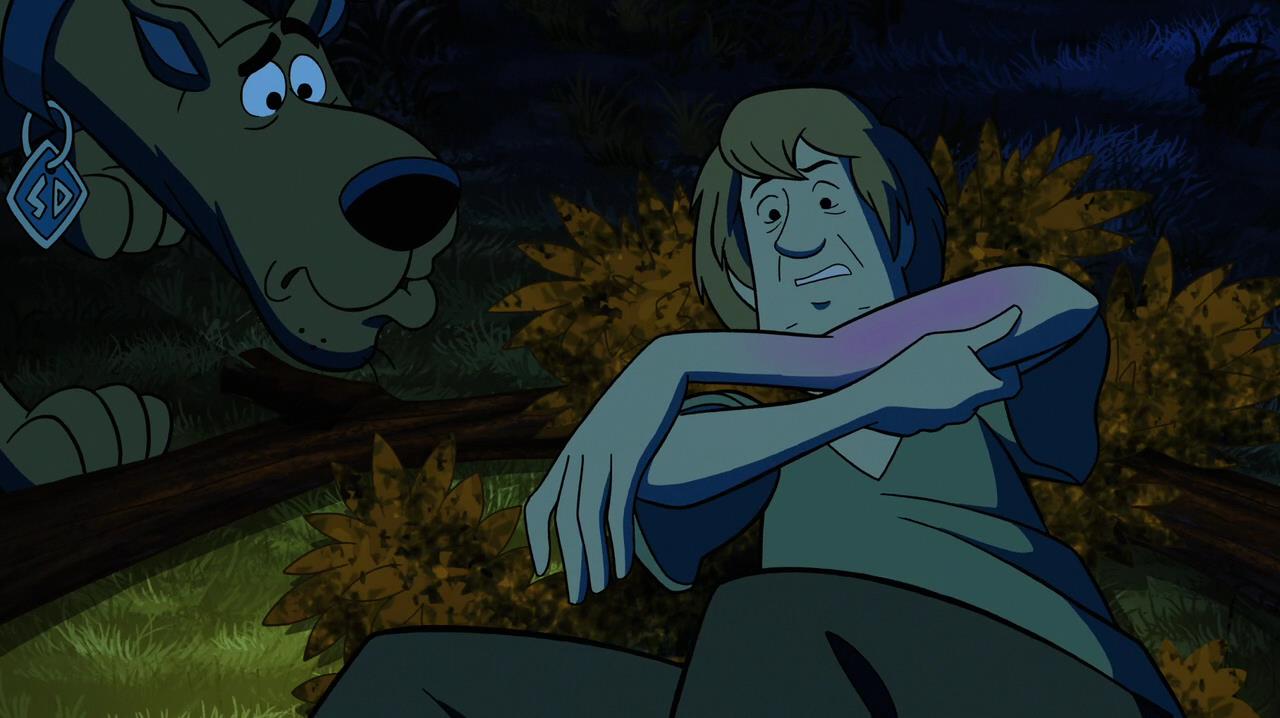
Cartoons are able to get away with their heroes being nearly indestructible. They can be thrown out of airplanes, run over, stabbed, burned, blown up, and more all without showing the effect. For Supernatural, that is simply not the case with its heroes in the Winchesters. They can die and have died—and while they break our own reality’s rules by being resurrected repeatedly, they recognize that death and injury has now polluted the innocence and constancy of Scooby-Doo.
Sam and Dean react differently to these developments—and to their insertion into the cartoon at all. Dean is an eager fanboy trying to impress the Scooby Gang, especially Daphne, while Sam is exasperated by the cartoon logic that permeates the universe they’re now inhabiting. And yet, they are reflections of the same coin once their rules start to overtake Scooby-Doo’s. Dean states emphatically to Sam, “It doesn’t matter if we die. Scooby-Doo could die! And that’s not happening, not on my watch. I’d take a bullet for that dog.”
In many ways, this has nothing to do with the cartoon figures they’re actually interacting with in the episode. Instead, it is about protecting the integrity of the actual cartoon series itself. This show has been a refuge for the brothers over the years and to have their world rules pollute it would pollute it in the long run for them no matter what happens once they are freed from its confines. It is the story itself that matters here, not the actual cartoon characters. And yet, we see both brothers doing everything they can to impress and befriend the Scooby Gang. Dean tries to team up with Daphne. They jump in the front of danger when the ghost emerges. They insert themselves into the mystery at every turn. Sam, in his own way, tries to impress their childhood heroes. As they’re investigating the attic, he tells Velma in confidence, “ My brother and I, we hunt them, along with werewolves and vampires and demons and… We’ve saved the world. A lot.”
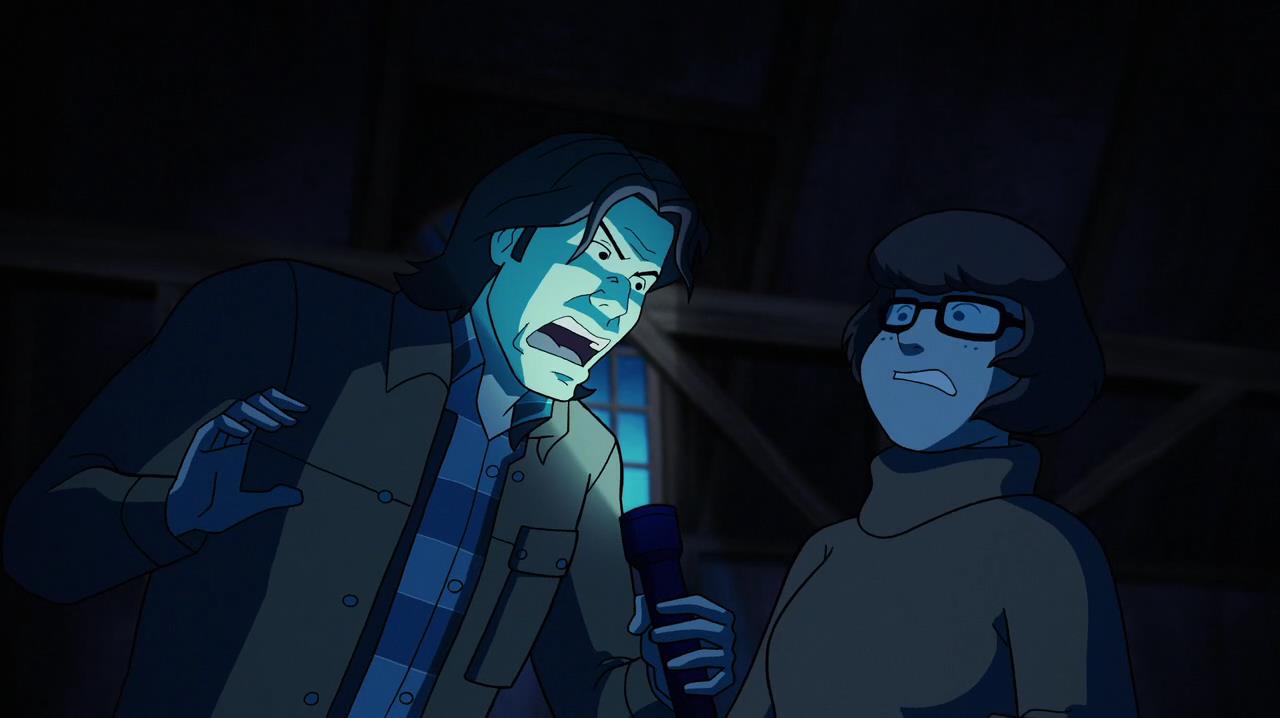
There is pride in Sam’s voice and he truly wants her approval even if he comes off as scoffing or exasperated for much of the episode. Sam, always less open with his fanboy tendencies than his brother, quietly wants to be accepted by these cartoon childhood heroes—and in his own way thank them for their guidance and constant comfort through the hard years. After all, they chose to go on mysteries no matter the danger. They chose to travel together from place to place in pursuit of these cases. That reflects so much of Sam’s own childhood—and yet he hadn’t had the choice. It was something imposed upon him and something that he had to come to terms with in his own way. The Scooby Gang, on the other hand, prove that anyone can be heroes, even someone considered as bookish or geeky or frumpy by many as Velma. She represents being outside the norm as well. She stands in stark contrast to Daphne—and for Sam that means he can see himself in her character.
It also explains why he’s so nervous around here as he ends up clumsily tripping over things in the attic. Sam, when he wants to be, can be quite graceful and stealthy. In this case, we see him flustered by his own childhood hero—something he doesn’t want others to know or realize, especially his big brother, Dean.
As it becomes painfully obvious, however, that this ghost will kill them or further pollute the refuge that is Scooby-Doo, the Winchesters break down and decide to reveal the truth to the startled Scooby-Doo characters. They tell them that ghosts are real. The characters each have an existential crisis, exclaiming, “Werewolves, vampires, demons? I thought I was blind without my glasses, but I was just blind. Oh, how could I be so stupid?” and “We’ve been stopping real estate developers when we could have been hunting Dracula? Are you kidding me? My life is meaningless!” and “If there are ghosts… that means there’s an afterlife. Heaven. Hell. Am I going to Hell?!”
It is the complete breakdown of the Scooby-Doo rules and the usurpation of the Supernatural. Immediately, having their fictional universe supplanted, the Scooby Gang melts down in front of the Winchesters. It is the last thing the brothers wanted. They are used to having to inform their victims of the truth—and having them handle it poorly. This time, however, it is personal and impacts them more. This is their story of refuge. This is something that tethers them together in their shared childhoods. Immediately, Sam and Dean have no choice but to try and rally their childhood heroes. If they don’t, the pollution of reality into their fictional sanctuary will be complete. Fred, Daphne, Velma, Shaggy and Scooby will each lose their innocence. They will become just like Sam and Dean and it will shatter the escapism the simple cartoon provides.
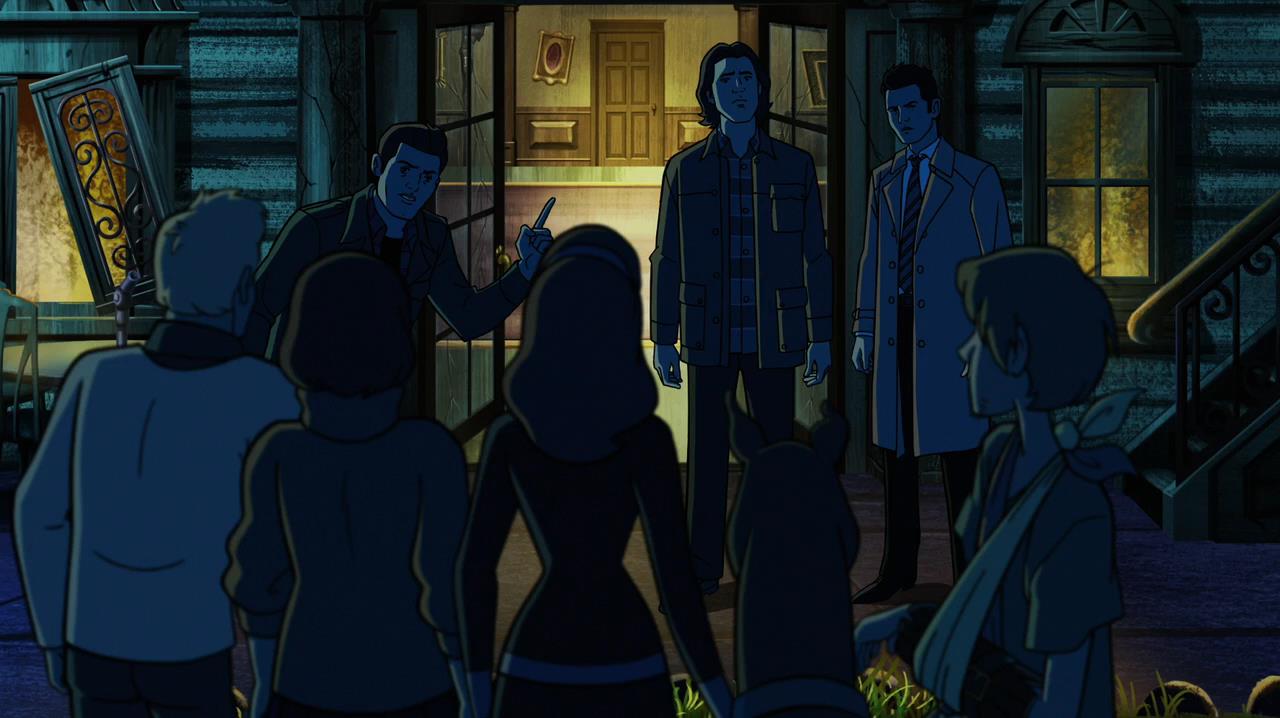
The rally speech also calls back to Supernatural’s own past. Dean has given several of these speeches, either in serious mytharc episodes or in stand alones. He gave one in Season 5 at the height of the Apocalypse, dubbing their team “Team Free Will.” He gave another in Season 8 when leading Charlie’s army in the Battle of Moondoor. Here, he is rallying his childhood heroes with gusto—and reminding himself as to why these characters and this universe means so much to him. He states: All right, knock it off! Come on! Scooby Gang does not have nervous breakdowns. Now you guys may not have tangled with the supernatural, but you’ve fought monsters, real freakin’ psychos. Well, you stopped Zeke and Zeb. Shaggy figured out that the sharks Old Iron Face rode were really just torpedoes disguised to look like sharks. And what about the Black Knight? Huh? Mamba Wamba?”
Sam chimes in with his own rally, revealing that he is indeed a true fanboy after all. He says, “The Space Kook!”
Dean responds, “I knew it! You love this show, too. Space Kook. Ghost Clown. Miner 49er. You guys have all jumped into danger with no thought to yourselves. You’re heroes, and together, we’re gonna take down this phantom. Are you with me?”
The Winchester brothers are therefore sharing in their own love for this television show the same way that the SPN Family does every week and every season. They are sharing what they love about it and expressing gratitude. They are taking the time to thank these characters for their comfort and refuge through their lives. Often at conventions, fans of Supernatural are able to do the same with the actors that play their favorites be it Jared and Jensen or Misha or Samantha Smith or Felicia Day. The fandom is represented beautifully and subtly in this scene. The brothers are us as they get to confront in person the characters that have meant so very much to them. In a way, while they’ve had to shatter the cartoon’s sanctuary, they’ve also had a chance to really thank them—as well as work with them.
The brothers are eager to help the Scooby Gang put this mystery to rest. Velma states, nervously, “We don’t know how to fight the supernatural” Sam, eager to reassure his own childhood hero, states with confidence and reassurance, “It’s okay. We do.” They show off their own arsenal of weaponry and while they want to give the Scooby Gang the right weapons, Dean quickly takes a gun away from Velma, stating emphatically to Sam, “That’s a Scooby-Don’t!”
Fred seems eager to help, realizing he’s not the leader of the group at the moment. He says, “But we can help. We have to.” Dean seems thrilled by this plea and states emphatically, “F^#%ing right you can. You’re gonna do what you do best — build a trap.”
As the trap is set in motion, however, we see the Supernatural rules somewhat start to waver again. Sam is stunned, and asks, “Where did you get coconuts?” as Fred explains the trap to snare their vengeful spirit. In Scooby-Doo, Fred concocts an elaborate Rube Goldberg machine to capture the weekly villain. It often adds to the hilarity and the fun of Scooby-Doo as they often fail. Here, in “Scoobynatural” that’s just what happens. The spirit isn’t sucked up by the soap or snared by the washer machine. Instead, Castiel, Shaggy, and Scooby are all swept along the trap’s route. It makes Dean instigate his own trap. He admits that he knew that Fred’s trap would fail from the outset, so he uses the hidden passage in the floor to send the vengeful spirit down the slide into an elaborate salt circle. It successfully snares their ghost and they can now finally put an end to the haunting.
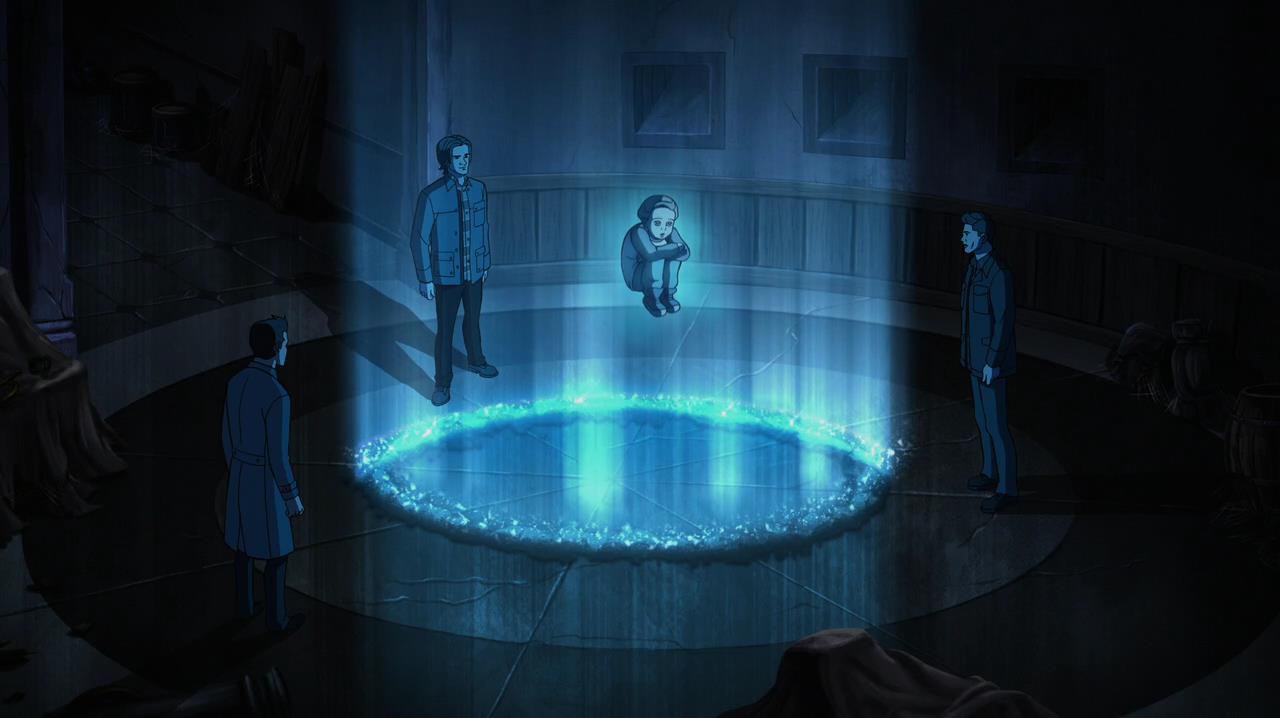
Throughout Supernatural’s history, the ghost is often a child. This is the case in “Scoobynatural.” Castiel is stunned. Dean, resigned to this truth, replies, “Yeah, creepy ghost kid. You get used to ’em.” It is the culmination of Scooby-Doo being supplanted by Supernatural as well. The reality that the brothers escaped from has caught up with them. The cartoon’s escapism is shattered in this moment. This isn’t just a ghost. It’s a child ghost that is scared and being manipulated and used for nefarious purposes by someone else. He’s also an innocent victim, then. And so, he’s not really the evil behind this. It’s out in the real world that is corrupting their story sanctuary.
The Winchesters take advantage of that fact. They cannot reclaim their innocence. They cannot ever go back to a time when they were not hunters. They know when they emerge out of this alternate reality that all of their troubles and difficulties will be waiting for them once more. But they can restore it to this child and to the Scooby-Doo Gang. They convince the child spirit to do them a favor before he’ll release them back to reality. All of the truth they dumped on the Scooby Gang? They’ll have to walk back all of it. The ghost will transform from the phantom seen chasing the group throughout into the very villain Dean knows will be revealed by the Scooby Doo episode end: Cosgood Creeps.
The Scooby Gang comes in to see the unrevealing. The spirit, still trapped very much in the salt circle, sits patiently while the mask is ripped off and the Scooby Gang realizes they’ve been right all along. There’s no such things as ghosts. There’s no such thing as supernatural creatures—much to Castiel’s indignation. Their universe has been restored to rights. While Sam and Dean may not be able to join in their reclamation of innocence, they can reclaim Scooby-Doo as a story of refuge. They can look back on their experience with fondness and know that the Scooby Gang will never have to truly endure the darkness and the difficulties they have. They can go back to watching the cartoon when they want to and can relive a happier moment in their hard childhoods. It’s the real reason they were so determined to save the Scooby Gang at all. It wasn’t really about the actual individual characters—non-living beings. It was about what they represented to Sam and Dean all along.
Once they’re returned to the real world, the brothers keep their word to the child spirit. They destroy the very pocket knife that keeps him tethered here and they will take down the man that has been using him as a weapon. In this way, they will also restore this child’s innocence.
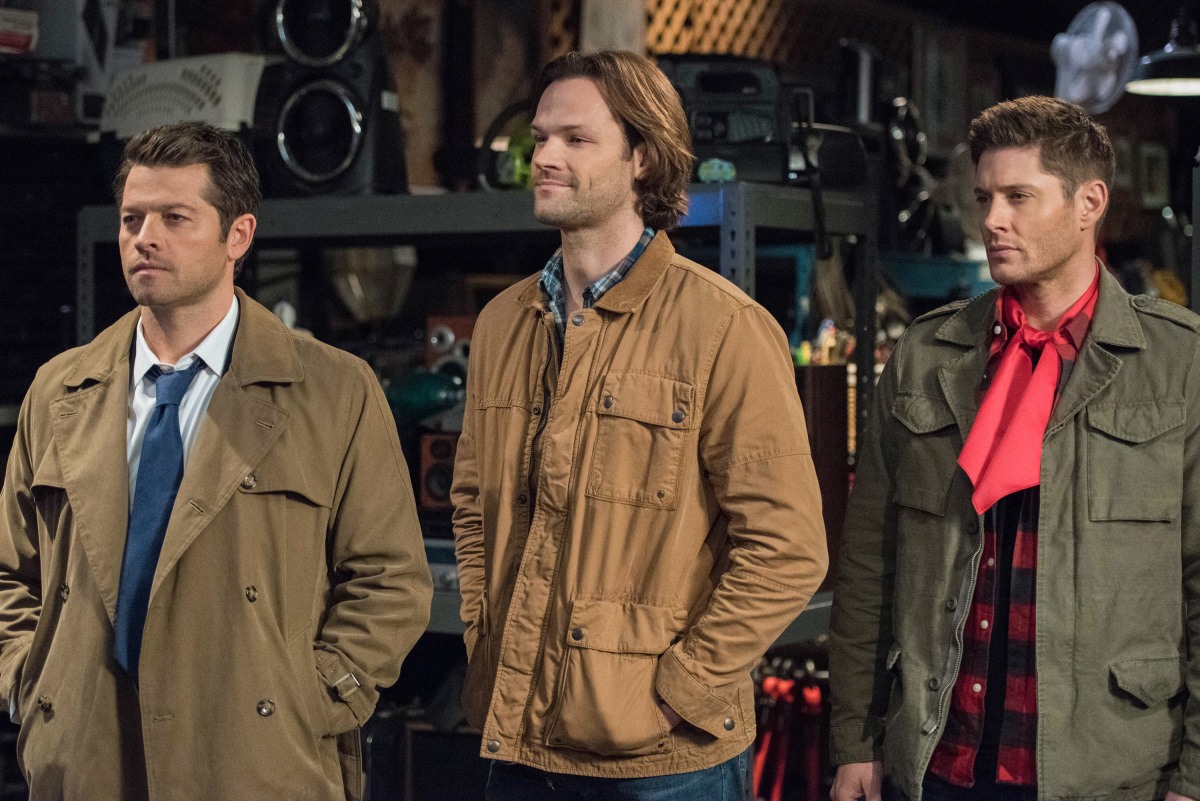
And yet, Scooby-Doo has bled beautifully in the closing sequence of “Scoobynatural.” Dean is sporting a red ascot to call back to Fred’s iconic attire. Sam is amused by the fact that Velma was right. He says, “Ha! Velma was right. It was a shady real estate developer after all.” The brothers don’t take out their villain the way they normally might—by force. Instead, they spring a trap at the pawnshop, confronting Jay as he’s about to force the shop owner to sell his business. They’ve called the police on him and Dean states, “Good enough for Capone, good enough for you.” They’ve got Jay on tax evasion and that is the crime he’ll be punished for in this case. As he’s led away, much to Dean’s delight, Jay utters the iconic Scooby-Doo line, “It’s not fair. I would’ve gotten away with it if it wasn’t for those meddling kids.” Dean instantly turns back into the four year old fanboy he’s been all episode long and quickly turns to the camera that’s not supposed to be there in Supernatural to deliver the closing line, “Scooby Dooby Do!”
At this point, both Sam and Castiel have had enough with this crossover business. Castiel tells him in his deadpan manner, “Dean, you’re not a talking dog.”
So where does that leave us, the audience? How do we learn the lesson of story as refuge? What does it mean for us to see this mashup of two shows that mean a lot to much of the fanbase? Much of the viewing audience reacted strongly to this particular episode for a reason. Much of that reaction has been extremely positive. In many ways, it is because an episode like this fulfills a number of layers beyond its surface enjoyment. We can enjoy the humor, the Easter egg hunt of Mystery Machines in the live action scenes, the metafictional shout outs between the two titles, the nostalgia and the sheer fun.
First, though, we must also consider what story means to each one of us. Why do we watch, read, listen to, or otherwise consume stories in their infinite varieties? There are several universal answers and yet there are even more individual reasons. What draws us to Supernatural in the first place? What draws us to certain characters in the show? Why do we continue with it after all this time? Is it the familiar in a topsy turvy world? Is it that Sam and Dean stand in as avatar for who we are or would like to be? Is it the genre itself? There are no right or wrong answers to any of these questions. They are just there and we answer them almost without realizing they were asked. Taking a moment to do so allows us to really explore what it is about this show and the episode “Scoobynatural” in particular that allows us to enjoy it so deeply.
Think about a bad day. Think about a difficulty at work or school or at home. Think about how it made you feel. Were you sad? Were you angry? Were you bewildered? Were you emotionally spent afterwards? Think about how you responded to it. Did you cry? Did you shout? Did you become cold or indifferent? Think about some piece of bad news—personal or in the news—and how that made you feel. Did it make you sad? Did you feel helpless? Did that news make you want to escape? Think about how you deal with those situations. What is your standard method of comfort? Do you turn to snacks or meals? Do you turn towards napping or taking a walk? Or do you turn towards a story?
Often, when we have a difficult day, that’s precisely what we do. We decide to read a book to calm down and unwind. We sit down and veg out in front of the television. It’s often something fluffy or empty, but sometimes it’s a show that we love—like Supernatural. We do it because it is familiar and comforting. We do it because it inspires. We turn to those stories to recharge ourselves. Think about your favorite episode. Your favorite scene. Your favorite character. No matter your mood before, I bet you’re smiling at the memory of it. That episode, that character, that scene is a refuge. It is an anchor that we are eager to hang onto. Story gives us a moment to pause—whether we’re reading or watching it—and that is one reason why we value it so. It’s also why so many of us choose to rewatch the series during the summer.
Many fans have already stated that they’ll watch and rewatch this episode many times. Why? It can’t just be because it was fun. It is because we are Sam and Dean in this episode. We fangirl over them the way they fangirl over Scooby and the gang. We fangirl over Scooby and the gang the way they do, too. This episode makes the argument for story as refuge. We know, now, that whenever we’re having a bad time we can put this episode on and for awhile the world will stop and we can take a breath and just be. We know that this episode captures us as fandom and as fan individual, it captures what we love about both franchises expertly, and it allows us to be lost in a world that is innocent and fun and full of many layers. We know that it has the ability to just be light entertainment and it also has the ability to make us think deeply about ourselves and about story and where we turn to for refuge when the world goes crazy around us.
It seems silly on the surface, but when we slow down to consider the meaning of story in our lives it makes perfect sense. Story is all around us. It connects us to ourselves, our humanity, and the world around us. It allows us to understand, to interpret, to escape, and to navigate our world without losing who we are and what we’re about. Story allows us to step outside ourselves and experience someone else’s trials and tribulations as if they were our own. Story allows us to see conflict occur and be resolved. Story unites us as human beings and when we need it as refuge we seek it out over and over again. Sometimes we want to cry so we turn to sad stories. Sometimes we want to laugh so we turn to comedies or parodies. Sometimes we want to watch something silly or light just to feel relieved of our burdens. Sometimes we choose a story simply because we recognize the characters in it as our old and dear friends—ones that are with us whenever we need to lean on them. We choose stories that relate to us, that represent us, that make us think and feel, and explore our world in inspiring and insightful ways. While facts and news sources and data may provide us with a lot of information on what is happening or how it is happening, in many cases it is in story that we really find the why it is happening. Story makes us who we are and we make story what it is.
It’s a good thing that Supernatural meets so many of these requirements and continues to do so for so many this far into its run. May it continue to be a story of refuge for its audience for many years yet to come.


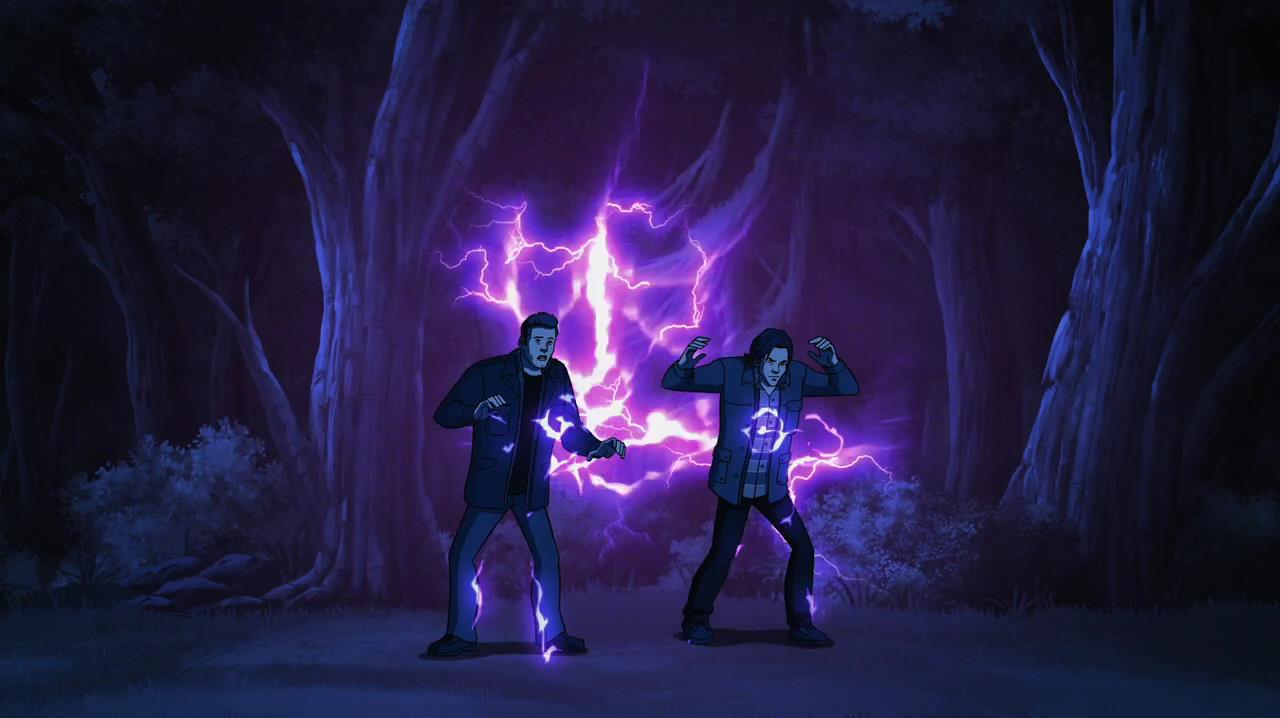
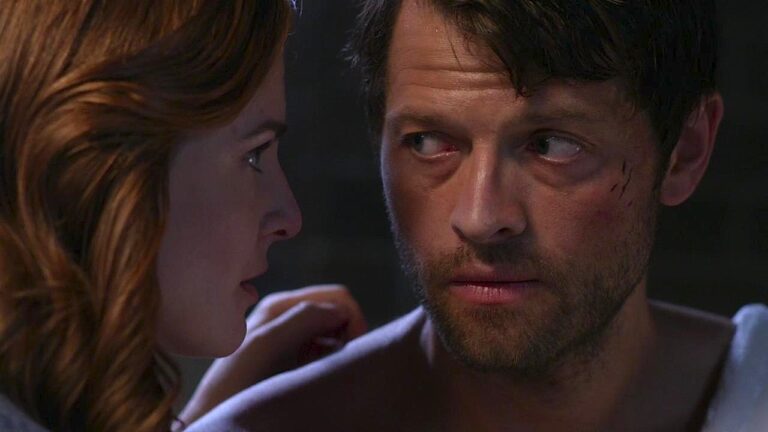
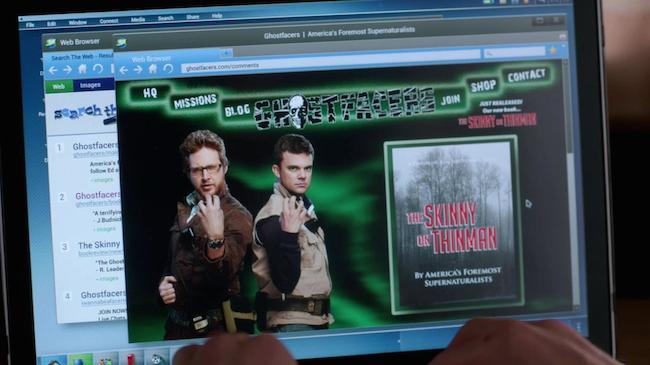
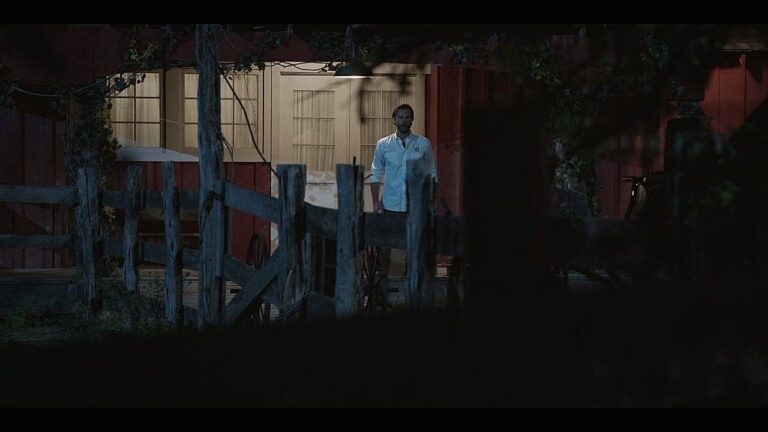
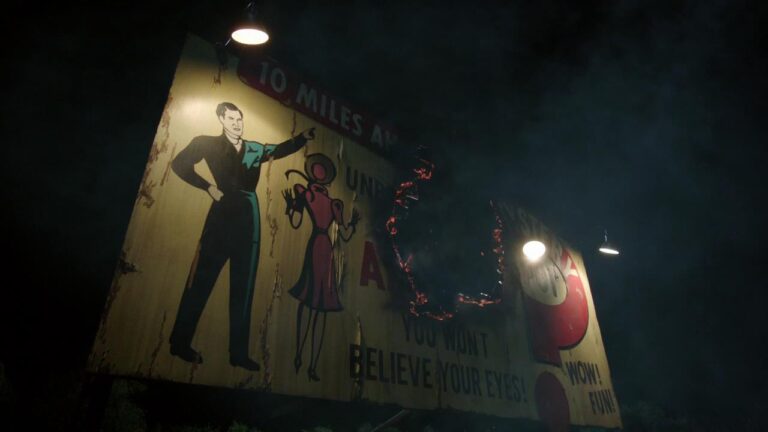
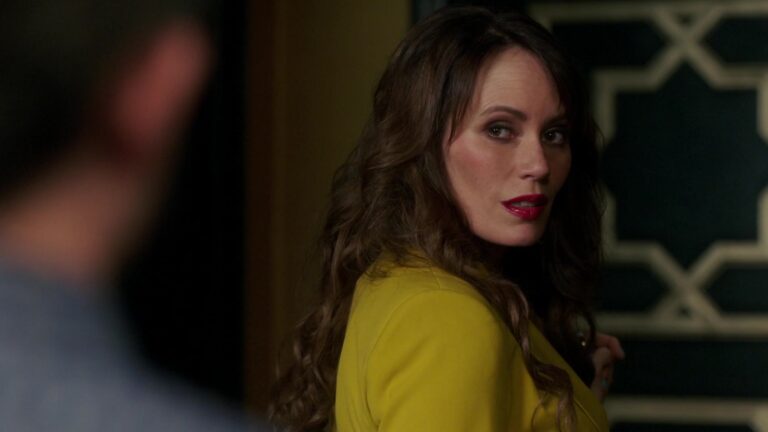
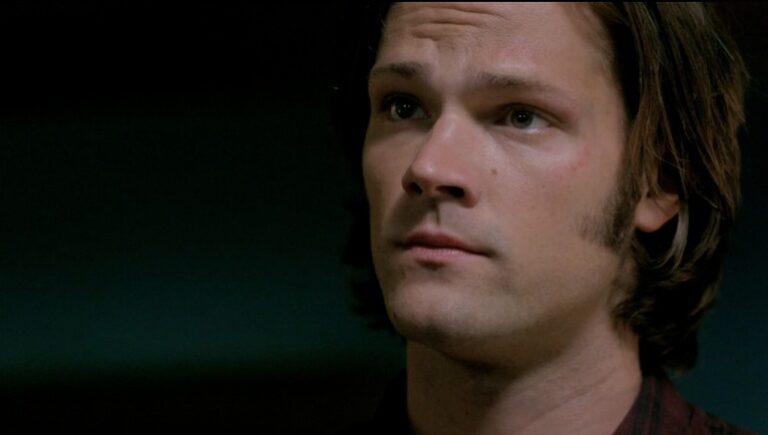
Leave a Reply